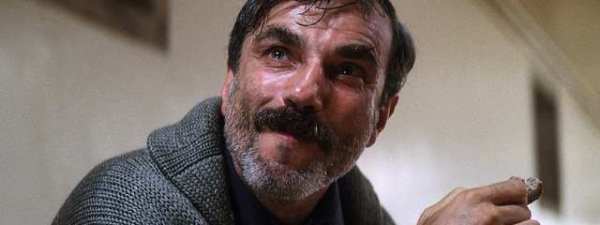I remember first watching Daniel Day-Lewis in The Last of the Mohicans as the film’s protagonist, Nathaniel Poe, or Hawkeye, with his long flowing hair competing with him for screen time. I enjoyed his performance, but to be honest, it doesn’t really take much to portray the prototypical action hero torn between two sides. Then I saw him go nuts as Bill the Butcher in Scorsese’s Gangs of New York, which to a young kid back then, was off-putting and disturbing, in a totally positive way. Day-Lewis has always had this penchant for choosing odd, eclectic and diverse roles, from the aforementioned characters, to Irish painter Christy Brown in My Left Foot, to showing some vocal range as Guido Contini in Nine, and most recently, as Abraham Lincoln in Lincoln, but it was in Paul Thomas Anderson’s There Will Be Blood that Day-Lewis widened the gap between his fellow thespians as one of the acting greats of this generation. He was Daniel Plainview, power-hungry, mad, insane, greedy and psychopathic. If there was a handbook on method acting, Daniel Day-Lewis’s mug should be plastered on the cover. As a guy not brought up in American history and grew up outside North America, he made the California oil boom interesting. He was a man possessed in this movie, and I loved every second when he was on screen. In the same film, Paul Dano portrays the hapless evangelist Eli Sunday (and also his twin Paul Sunday), and while Dano’s performance is entertaining in itself, he is absolutely swallowed and consumed by Day-Lewis whenever both are on screen at the same time, and pretty much for every scene in the film for that matter. He commands the screen in every scene with an almost unquestionable authority, and you can’t help not taking your eyes off the screen no matter how disturbing the scene. Absolute brilliance, and for his efforts, he bagged the Oscar, which would have been a damn travesty if he didn’t.
Six years on and in deep retrospect, I wracked my brain figuring out who could have been Daniel Plainview had Day-Lewis not accepted the role. Nada. Nothing came to mind. Maybe Christoph Waltz could have got the psychopath part down, but he definitely wouldn’t be able to match Day-Lewis’s rage and imposing, primal aura and would probably end up playing Col. Hans Landa again, much as I wouldn’t want to criticize his similar roles in his films. He inhabited the character so well that actor and character seems inseparable like Brando to Don Vito Corleone. You just can’t see anyone else filling in Daniel Plainview’s boots and scruffy facial hair at this point, and the same goes for the other roles he has taken in previous and present films. With There Will Be Blood, Daniel Day-Lewis redefined what it meant to be an actor, more so the difference between “movie star” and actor. Surprisingly, for a guy who’s been in the industry for over 30 years, he has only appeared in 20 films. He clearly doesn’t do his day job for the box-office receipts. Not everyone does it and not everyone will do it, but he has established the art of acting in a whole new dimension. Acting, in the Day-Lewis sense is like fine machinery: smooth, precise and efficient. A man willing to put himself in physical pain to “pretend”, well in his case, “inhabit” a character is astounding in itself and with his eccentrics both on and off the screen, Day-Lewis, as Daniel Plainview, has given us the best acting performance of the past decade.
In There Will Be Blood’s final scene, as Daniel Plainview maniacally hammers a bowling pin down poor, defenseless Eli Sunday’s skull, and afterwards simply excaliming “I’m finished!” to his butler, Day-Lewis is both scary, menacing and entertaining. To watch a scene as gruesome as this and walk away with a strange feeling of satisfaction and entertainment is a rare feat by any actor, but Daniel Day-Lewis has been doing this all his life. We may wait for 3-4 years for his next film to come out, but that wait will be very well much worth it.

Daniel Day-Lewis is simply phenomenal, no two ways about it!
Ditto! Can’t wait to find out what next role he takes.
Knowing him, surely something unexpected!
Pingback: The Last of the Mohicans (1992) | timneath